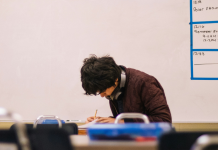
The key to studying successfully, they say, lies in studying smarter, not harder.
It’s exam time … and while some of learners might seem to thrive on last-minute cramming, for others this is not the best approach. Eat, sleep and prepping aside, Vineet Ladia, co-founder and director of mobile learning app company, Edukite South Africa, shares key ingredients to help young, anxious minds succeed.
 Consistency is key
Consistency is key
The majority of us have experienced the mad study rush as we cram for an exam at the last minute. Sadly, this can often end in poor results and even failure. It is way more effective to study for two or three hours every day because the brain needs time to organise all the information it has processed into its long-term memory bank, most of which is done during sleep.
The learner becomes the teacher
As Einstein once said: “If you can’t explain it simply, you don’t understand it well enough,” and this is exactly what learners should aim to do. Teaching others is a surefire way to identify any gaps that need attention. Learners are encouraged to find a friend or family member who they can explain a specific topic to and who can ask them questions for clarification. Saying the information out loud can help the learner gain a more thorough understanding of the topic.
Break everything down in a flash
Flashcards are effective in helping learners familiarise themselves with information. This means breaking information down into groups and using flashcards with key points. These are brilliant for helping learners revise all the key points on a topic quickly and effectively.

Create the right environment
While it may be tempting to study in bed or on the couch, this can lead to learners becoming distracted or even falling asleep. Learners should rather find a space they can dedicate to studying, even if it’s small, because it will mean greater focus on the task at hand. Most importantly, digital distractions like phones and social media must be completely avoided during study time.
Reading is not studying
Simply reading and re-reading text or notes is not actively engaging in the material, and leads to learners quickly forgetting the content. Learners should actively engage with the material by formulating their own questions, creating their own notes, extracting examples that relate to their own experiences, and creating maps or diagrams that explain the material.





